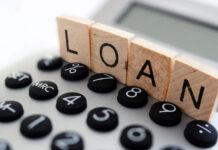The Forex market is a highly profitable market among all the traditional markets. Traders make huge money trading fiat currencies. Unfortunately, many brokers take advantage of the traders and commit Forex scams.
Since the internet revolution, the Forex market has increased volume and market capitalization. As of 2022, the market capitalization is around $2.409 quadrillion, and the daily market volume is $6.6 trillion—such a lucrative and liquid market for traders globally. Furthermore, the Forex market is open 24 hours, five days a week. Thus, many try their luck in the Forex market.
The desire to get rich quickly attracts many traders. As a result, many new traders join the Forex market daily. However, since their knowledge about the Forex market is limited, they become an ideal target for fake forex brokers.
The Forex market is very volatile, thus making it ideal for huge profits. Almost all the brokers allow leverages to maximize profit opportunities. However, since the Forex is volatile, it also carries substantial risk. There are opportunities to make a profit, and so are their chances of tremendous losses if there is a miscalculated investment.
As a Forex trader, you should understand what you can afford to lose in the worst-case scenario. Do not invest your retirement money in it. Chances of losses are great if you are a new trader, investing massively. You will greatly magnify the chances of loss when using leverages without adequately understanding the Forex market.
The Commodity Futures Trading Commission (CFTC) has seen a sharp rise in Forex scams in recent years. This article aims to advise you on identifying a potential scam.
Signs of a possible scam sales pitch:
The sales representative will try to make you believe that you can profit from the current news already floating in the market.
They advertise through emails from friends and relatives or word of mouth, churches, social groups, or members of community groups.
These representatives ask for your personal information like your name, phone number, home address, and email address.
Assuring you that there is no risk involved while trading in the Forex market.
Using persuasion tactics to entice you
Using greed to entice you with the prospect of wealth, something that you don’t have but can have if you are willing to invest in the Forex market. They would usually get your attention by stating that ‘your current investments can double if you were to invest in this Euro/dollar deal which promises guaranteed returns.’
These imposters would try to fake affiliation with a reputable firm or have particular experience or exceptional credentials. They would try to pursue by faking their experience like ‘trust me, I have been senior vice president for the past 10yrs in this firm and wouldn’t sell you something that cannot be profitable.’
They make you believe that other smart people who wish to maximize their profits have already invested. They would also acknowledge that though it is a considerable sum to invest in, the guaranteed returns are ‘too good to pass.’
They would ask for small favors in return and guarantee huge returns. They would go by offering a discount; they would only charge half the normal commission rate if you were to invest in the Forex market now.
They would create a false sense of urgency by stressing to claim the limited supply of the Forex market. They would try to convince you by stressing the importance of the time as the foreign market is about to open, and you are left with little or no time to decide, and that it is in your best interest to participate in the Forex market now.
Watch out for these Tell-tale signs to identify potential Forex scams.
- Assuring you that the Forex is not a “bearish” market.
- Firms claiming that you can or should trade on the interbank market.
- They request fast cash transfers through the internet, mail, or other means.
- The details of the broker or the firm are almost non-existential; their background information is challenging to get.
Ask and get as much information for the broker or the firm as possible.
- It would be wise if you were to contact CFTC to check the company’s registration status, disciplinary history, and business background before parting away with your money.
- Ask about the rules and regulations and what obligations are required if you choose to register with the broker or the firm.
- Ask about the past performance of the broker or the firm while dealing in the Forex market. Don’t forget to inquire about the individual’s previous client performance.
- Ask if anyone has denied so far and what was the reason for them declining their service.
- Get all the information in a written format and don’t just rely on oral statements or promises.
- Please verify all the information you receive to ensure that the firm or the broker complies with what they say or do.
- You should receive a risk disclosure statement in written format.
- Then, check all the information you have gathered from an independent and licensed financial consultant or advisor that you can trust.
Ask these questions to any financial professional
- What qualifications do you have to offer me with this service?
- In what ways does this product satisfy my financial requirements?
- What method do you use to receive payment for your work?
Last but not least, if you decide to go ahead with Forex trading
Do not put more money into your account than you can afford to lose.
Do not take out a mortgage or withdraw money from your savings account.
Remember, margin trading greatly exceeds the dollar amount you have deposited if you make a loss. Therefore, avoid further trading if you cannot withstand additional loss.
Conclusion:
There are many Forex scams online. If you are careful enough, then you can stop them easily. Follow these guidelines if you are willing to participate in the Forex market. Always do use caution.



































































